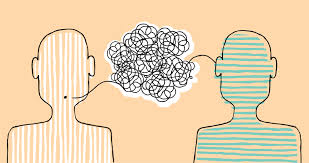My view:
In the video where Russell Bishop speaks about celebrating culture and allowing Māori students to be Māori (“A culturally responsive pedagogy of relations,” 2012), it gives me as the teacher and the other students the ability to learn from other cultures and embrace the differences. In my class and within my pedagogy, I celebrate all the cultures and uniqueness of each individual. In “Class Notes: Week 31 – APC – Indigenous knowledge & cultural responsiveness,” (n.d), it defines culture as a “relationship based approach”, so it is not related directly to the one child and their needs. It is a focus on building the bond and connection with the student to allow them to grow confidence and gain an active learning attitude. In my pedagogy this is a belief which I strive to achieve with each student. With all my class, not just my students from other cultures, I aim for a “co-construction of learning”, as mentioned in “A culturally responsive pedagogy of relations,” (2012). This allows for the students to have a say in their learning outcomes and they are able to take ownership of their own abilities.
Planning & Assessment
 In NCCReSt (n.d.), it states that to be culturally responsive is to “learn from and relate respectfully with people of your own culture as well as those from other cultures”. In our school we have school-wide activities and learning activities that allow all the students to acknowledge and embrace all cultures within the school. Within our area groups (Years 1/2, 3/4, 5/6, 7/8), we set goals based on the achievement of particular groups of students. This is focused on Māori students- girls and boys separated, Pasifika students- separated into girls and boys as well, and also sometimes separated purely by year level. Having area goals set with such a specific student group leads the teachers to be able to identify their aims and teaching expectations with those children. These goals are reflected on at the end of the year and new goals are set at the beginning of the next year based on the data received in final testing of the year. Russell Bishop talks about the power of goal setting (“A culturally responsive pedagogy of relations,” 2012) and it’s effect on Māori learners. These students need to have an achievable goal before them for them to take ownership of their own learning and I believe as a school, we do this well.
In NCCReSt (n.d.), it states that to be culturally responsive is to “learn from and relate respectfully with people of your own culture as well as those from other cultures”. In our school we have school-wide activities and learning activities that allow all the students to acknowledge and embrace all cultures within the school. Within our area groups (Years 1/2, 3/4, 5/6, 7/8), we set goals based on the achievement of particular groups of students. This is focused on Māori students- girls and boys separated, Pasifika students- separated into girls and boys as well, and also sometimes separated purely by year level. Having area goals set with such a specific student group leads the teachers to be able to identify their aims and teaching expectations with those children. These goals are reflected on at the end of the year and new goals are set at the beginning of the next year based on the data received in final testing of the year. Russell Bishop talks about the power of goal setting (“A culturally responsive pedagogy of relations,” 2012) and it’s effect on Māori learners. These students need to have an achievable goal before them for them to take ownership of their own learning and I believe as a school, we do this well.
Communication
Before researching for this assignment, I believed that our school had clear and open lines of communication. After watching the video from Mike Hagan, I believe that there it is a uneven approach to our communication (“Mike Hogan: Culturally responsive practice in a mainstream school,” 2012). As in that video, he states that we as a school need to be in consultation with our Māori parents to get input into their children’s education so we as teachers “can do the best we can.” In order for this to happen, the communication needs to be on even ground. If it is sided with the school, the ownership of the decisions is going to lie with the teachers. Should the communication be on the parents terms? or on the schools terms? I believe that the school needs to set clear expectations of what is needed for having parents input into their child’s education. In accordance with this expectations, there should be an agreement that the parents voice has follow through- that their opinions and beliefs goes into the teaching and pedagogy of the staff.
of communication. After watching the video from Mike Hagan, I believe that there it is a uneven approach to our communication (“Mike Hogan: Culturally responsive practice in a mainstream school,” 2012). As in that video, he states that we as a school need to be in consultation with our Māori parents to get input into their children’s education so we as teachers “can do the best we can.” In order for this to happen, the communication needs to be on even ground. If it is sided with the school, the ownership of the decisions is going to lie with the teachers. Should the communication be on the parents terms? or on the schools terms? I believe that the school needs to set clear expectations of what is needed for having parents input into their child’s education. In accordance with this expectations, there should be an agreement that the parents voice has follow through- that their opinions and beliefs goes into the teaching and pedagogy of the staff.
References:
- A culturally responsive pedagogy of relations. (2012). Retrieved March 4, 2016, from https://app.themindlab.com/media/12844/view
- Class Notes: Week 31 – APC – Indigenous knowledge & cultural responsiveness. (n.d.). Retrieved March 4, 2016, from https://app.themindlab.com/course/release/210-week-31-apc-indigenous-knowledge-cultural-responsiveness
- Mike Hogan: Culturally responsive practice in a mainstream school. (2012). Retrieved March 4, 2016, from https://app.themindlab.com/media/12845/view
- NCCReSt. (n.d.). Culturally Responsive Pedagogy and Practice. Retrieved March 4, 2016, from http://www.niusileadscape.org/docs/pl/culturally_responsive_pedagogy_and_practice/activity2/Culturally Responsive Pedagogy and Practice Module academy 2 Slides Ver 1.0 FINAL kak.pdf
Picture Sources:
- https://chloemiko.wordpress.com/2015/02/21/cultural-sensitivity-standard-9-meta-reflection/
- http://theinvestingmindset.com/improve-goal-setting
- http://www.comnetwork.org/category/publications/
